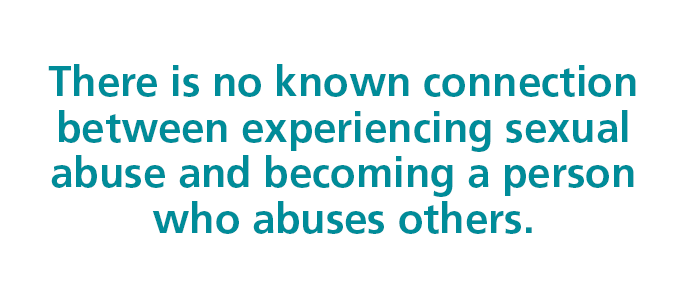While most people would agree that rape is not funny, jokes about actions that equate to rape or elements of "rape culture" are as old as comedy itself. In fact, there is little agreement even among rape activists about if or when these things are funny, and if or when humor can be used to help promote education about sexual violence.
Several events from the past few days have us talking about humor and sexual violence again.
Many survivors of trauma use humor as a way to interact with the world in a safe and comfortable way. For many survivors, the healing journey includes lots of laughter, as well as lots of tears. Laughter helps us to regain our balance and find a comfortable place from which to explore really challenging concepts.
It’s well-noted that making sexual violence funny is pretty hard to do in practice. A LOT of people get it wrong. Some examples of using humor as a platform for education and awareness around sexual violence that come to mind for me include the College Humor Bear PSA or the approach used in programs like Sex Signals.
To get it right is an art form and usually involves a combination of:
- Appealing to an inner moral compass or sense of justice
- Comedic timing
- Actual facts
In recent years, comedian Amy Schumer has effectively used humor to point out components of mainstream American social norms that are so common and familiar that they practically go unnoticed. Her delivery of the absurd - pointing out our cultural double standards about entitlement, aggression, domination and dehumanization when it comes to sports and sex - earned her high praise from many, including feminist activists and anti-violence advocates. Similarly, the It's On Us campaign, founded by former Vice President Joe Biden to prevent campus sexual assault, has partnered with Funny or Die to produce humorous public service announcements to encourage students to take action to keep each other safe. The truth is sometimes stranger than fiction and it is often funny when we realize it.
Humor is subjective. For many, the surprise of something shocking and inappropriate makes us laugh. Our discomfort makes us laugh. Oddly, this reaction to discomfort often plays in to everyday situations when we might also take action, but instead stop short and try to "laugh off" things that are highly inappropriate.
So, how does this all relate to the recent Saturday Night Live (SNL) skit on the World’s Most Evil Invention? In the skit, Dwayne Johnson presents his invention – a “child molesting robot.”
The skit has some points of merit - the other contestants were outraged and rightly argued that his invention was inappropriate, immoral and beyond what was an acceptable "evil". They stood up to him as a group. Had they ended there, it might not have been worthy of writing. But it didn’t. It perpetuated a myth about sexual abuse victims that must be addressed.
Let’s breakdown the scene based on the elements mentioned above:
Appealing to an inner moral compass or sense of justice: PASS. When “Roy” presents his invention at the World’s Most Evil Invention competition, the room full of Mad Scientists all express shock, outrage, and disgust. Even a room full of cartoonish bad guys express that this goes too far. When Roy hears criticism from the audience, he uses it as justification, and the mad scientists are appalled at being held in collusion with him and his evil invention.
Roy: “This guy gets it!”
Dr. Micronox (disgusted): “Oh my God, no I don’t!”
Comedic timing: PASS. Uncomfortable topics often elicit a laugh response. The shock value alone can bring about a chuckle. The demeanor, tone, and timing all seem to work for this skit. If you watched the skit, you may have found that you were laughing, even while you were appalled at the idea. Helping people find the light in dark topics may be a way of breaking the ice and starting difficult conversations. Many prevention programs use this tactic and it has worked well on college campuses and in the military.
Actual facts: FAIL. So here is where the skit falls way short. It presents commonly accepted misinformation and uses terminology that can cause more harm than good. First of all, experiencing child sexual abuse does not mean that the victim will go on to abuse others. This has been proven in a number of studies.

Further, this widely believed myth often creates fear and thus silence among victims of sexual abuse, preventing them from seeking help for their own emotional pain. To have it uttered on national television in front of an audience renowned for including many adolescents and young adults was horrifying, not shocking, and not funny. It was outright harmful. It is hard to imagine what a 15-year-old girl or 19-year-old young man who had been sexually abused during childhood might have felt when they heard those words. My stomach drops for them - to have entertainment suddenly flip to compound secrecy and shame must have felt awful.
Referring to people who commit sexual abuse against children as predators or evil overlooks the reality that people who commit sexual violence are often known and trusted by the victim and that they generally position themselves to be helpful and respected members of the community. Harping on these myths does nothing to help victims of abuse come forward or to encourage people who abuse to get help.
As another example of humor in poor taste, on the very same day jury selection began for the sexual assault case against comedian Bill Cosby, a trial-concept restaurant in Washington D.C. opened with a cocktail on the menu called the "Pill Cosby" - complete with empty pill capsules as garnish. The owners said they hoped the menu item would "bring awareness" about drug facilitated sexual assault, but activists were outraged and noted that simply giving a cocktail a pithy name does nothing more than trivialize - and thus make invisible - a very real issue. There was no fundraising element attached to the sale of the drink to support rape prevention or counseling services and no educational information provided. Just some booze that looked like it had pills floating in it that rhymed with "Bill Cosby."
Comedy is a useful tool to point out the absurd and make us rethink what we say and do. It can be a useful tool to hold the attention of the public and open minds. But when it is used to simply get cheap laughs or make a few bucks with shock value or inflicting humiliation, it is no longer funny.

